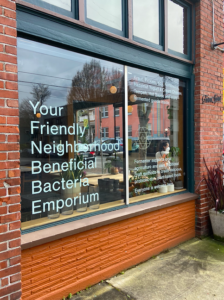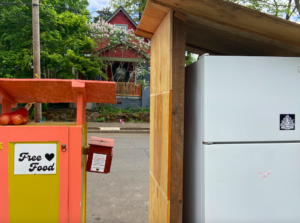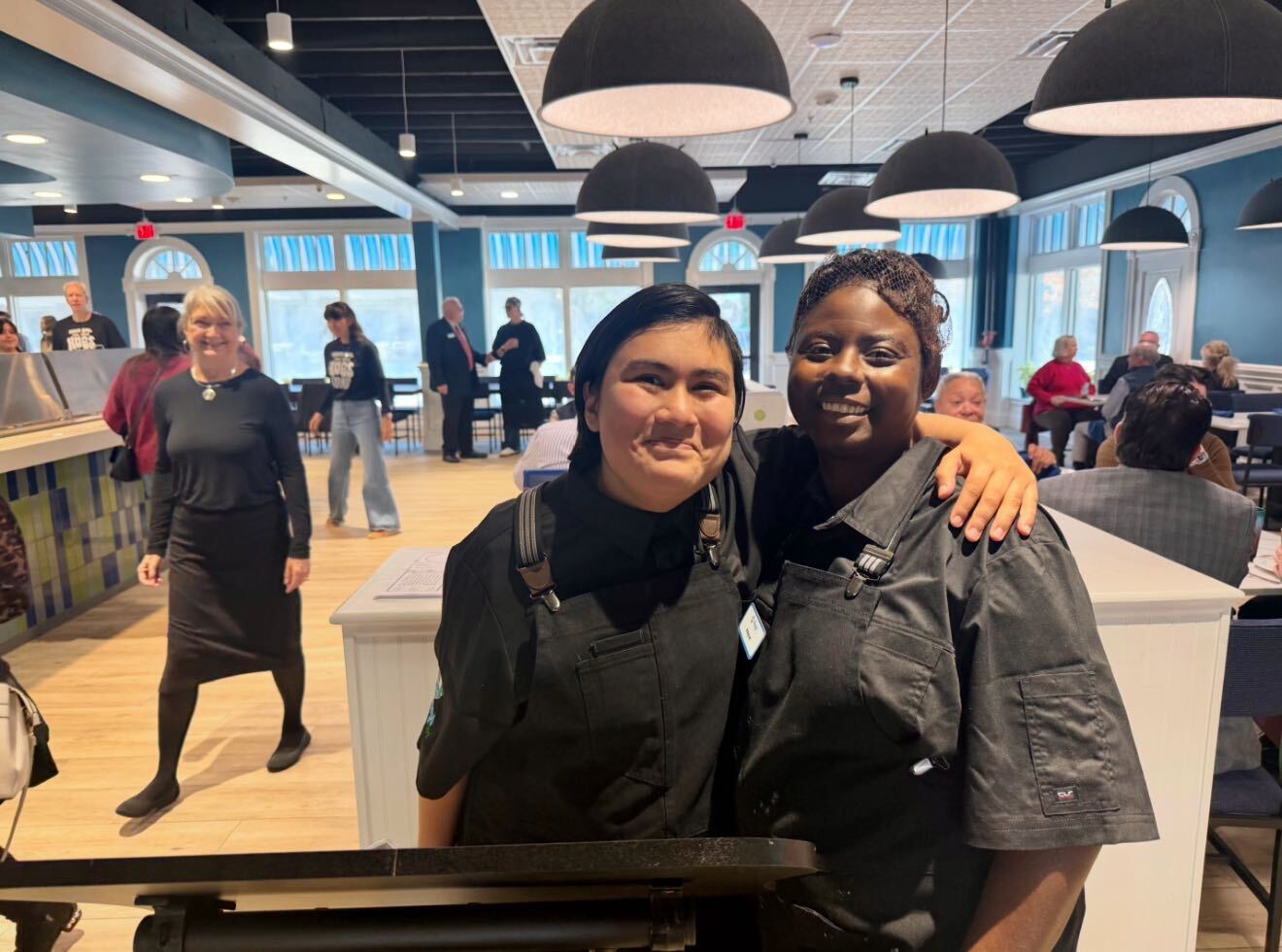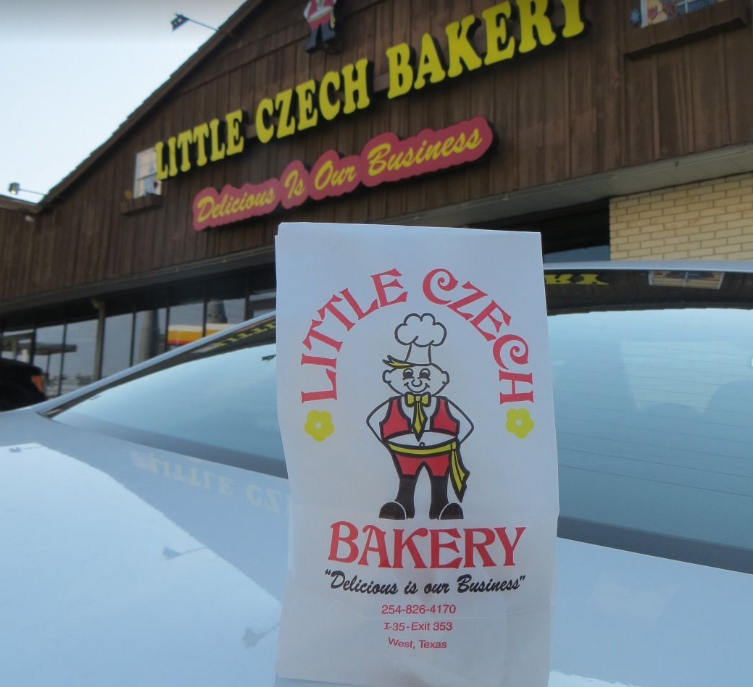(PORTLAND, Ore.) — “The sense of death was such a big arc of last year,” said Kara Gilbert, co-founder of woman-run Vibrant Valley Farm which supplies produce to Portland-area restaurants. “And then you see someone killed innocently, that had nothing to do with a virus…It brought this whole new lens and perspective. And people were online more than ever before.”
The onset of the pandemic followed by continuous protests after the murder of George Floyd in Minneapolis last year stretched Portland’s food industry to the point of breaking. Almost a year later, the industry is approaching a comeback, perhaps wiser than before.
COVID-19 forced an industry accustomed to long hours and late nights to slow down. It provided time for self-reflection and critical thinking, which pushed many to demand a more equitable restructuring of the restaurant industry. The summer’s racial justice movement pushed the efforts toward radical change even further.
The inward reflection and interrogation of the workplace was just the beginning for some. Restaurant workers looked outward, considering how they could help their community individually or through their place of work.
“COVID had to happen in order for July to blow up because everything would’ve just continued,” said Collette Higgins, a long-time line cook and baker at Woodlawn Bakery.
Jae Kmeto, a farmer at Vibrant Valley, thinks empathy grew from the pause that the pandemic forced. It found its place in mutual aid projects, in creative ways of getting food to those in need, in restructuring power dynamics in restaurants, and attempting to squash toxic behavior.
“There was nothing else for people to do, besides pay attention to what the fuck was happening,” she says.
Restaurants Restructure Through Reckoning
Portland, like many cities across the country, was presented with an opportunity to enact positive change— to dismantle toxic culture in the restaurant industry and to increase mutual aid, a community-based sharing of resources with those in need.
That opportunity first took shape as an online reckoning of restaurant culture. On July 7, unnamed restaurant workers across the city began to call out chefs and owners for their toxic behavior on Portland’s 86’d List, a spinoff of a nationwide account that reposts anonymous claims of restaurant-related harassment or abuse. Claims were also posted by renowned local chef Maya Lovelace.
Accusations ranged from sexist and racist microaggressions, overt sexism and racism, and more subtle examples of workplace harassment or abuse.
Between July and August, 86’d List posted 147 allegations of injustice at various Portland restaurants. Under fire were upscale fine-dining restaurants, Portland locations of major chains, coffee shops, bars, delis, breweries, and more. Although the posts have slowed, with 27 complaints added over the last eight months, the accusations have stimulated hard conversations and changes throughout local restaurants.
“Ultimately it comes down to the people in power becoming aware of how their power influences their workers,” said Aimee Plante, a line cook at Indonesian restaurant Gado Gado.
Cuban-American chef Aaron Adams, owner of Portland’s vegan restaurant Fermenter, is one of those people in power trying to make concrete changes. Last July, Adams was accused by some employees of yelling at staff and ignoring problematic power dynamics in the restaurant. After the accusations came out, Adams gathered the staff together in his backyard and apologized. His employees discussed issues they’d had with Adams and the culture in the restaurant, and ideas for how to change it.
“In conversations about kitchen culture before 2020, people were really focused on the economics,” Adams reflected, “So I thought, ‘Hey, I’m paying my dishwasher $18 an hour and they have medical insurance,’ like, ‘I’m a great boss.’ But it’s not the whole picture. They also have to feel listened to.”
Adams suggested they keep an anonymous comment box in the employee bathroom, giving staff members a space to submit issues they have with him or each other. He worked to dismantle the hierarchy in the restaurant because, he said, “You have to allow everyone to participate in the conversation,” continuing, “I manage the restaurant horizontally, which gives everybody a piece of creativity. It turns out people are really smart, and really want to do cool things, and make beautiful things in the world.”
Fermenter’s manager, Maya Carlisle, corroborated the accusations of Adams’ toxic behavior, as well as Adams’ attempts to make the restaurant a more equitable, healthy environment. Thanks to these changes, she says, “We don’t allow for the front-of-house versus back-of-house, or for the misogyny or racism or any of that kind of talk to creep in.”
The problems that have become characteristic of the restaurant industry have led some to leave the service side of business altogether. After 13 years in the industry, Kmeto, a queer Black woman, moved from restaurant work to farming. Though she made her move at the start of the pandemic, it was a long time coming, after years of microaggressions within restaurant culture.
“Those little things that people might not realize, greatly perpetuate systemic racism, and that leads to the killing of my people,” Kmeto said. “People just need to stand up, to realize there are marginalized people who are treated differently, and to be advocates for those people, and to have a zero-tolerance. I just feel like that’s such a necessity and such an important thing for a lot of small businesses that don’t have HR.”

Fermenter Restaurant on Southeast Belmont Street. [Credit: Alice Wolfe]
Some restaurants are going further than reflection and reform to show up for communities beyond their front doors.
Ranch Pizza often provides free pizza for the bi-weekly marches for Justice for Patrick Kimmons, a Black man killed by police in Portland in 2018. Mexican restaurant Güero donates 10% of sales every 10th day of business to organizations they support. Malka, which opened a couple of months before the pandemic began, provides free meals to those in need via Instagram.
Food-focused mutual aid groups have pushed need-based food distribution even further, and many current or former restaurant workers are leading the charge.
As unemployment soared and poverty levels rose in Portland, community-run “free fridges” started popping up across the city last summer, offering free food to anyone in need.

Northeast Portland Free Fridge [Credit: Alice Wolfe]
Lisa Chiem, a Portland food activist and employee of vegan Vietnamese restaurant Mama Düt, got involved with PDX Free Fridge last summer. Chiem helps foster community support through Instagram and incorporates artistic elements to the fridges. “I really just wanted to build community for Black and Brown folks,” Chiem said. There are now over twenty free fridges around Portland, and many more free food pantries.
Mark Guzman, is a first-generation Mexican American who helped found the mutual aid group Meals On Us. Guzman has worked in restaurants for over 20 years. Now working full time with Meals On Us, he recalls being underpaid, overworked, and constantly ridiculed by chefs throughout his time in the industry. The shift to Meals On Us, “feels like a dream,” he said. “For me, it works out because I’m still cooking, I still get to create, use what we have, working with amazing teammates, but also not have to worry about a manager, a GM, a head chef, yelling at me.”
At the start of the pandemic, Meals On Us provided food for healthcare workers, then shifted its attention to individuals experiencing houselessness, as that became a more dire need. The group noticed a shortage of breakfast offerings for houseless people and started cooking “real homey classics,” like french toast, breakfast burritos, and scrambles. They operate out of Haleakala PDX, a community kitchen that only charges them only $10 an hour for use.
Guzman is ultimately grateful for the impetus for restaurants to change their structures, and for the increase in mutual aid across the city, “I say it’s a great start but this should’ve happened a long time ago.”
Good Things to Come
It’s possible that even bigger, sweeping changes to the restaurant industry may be on their way as unions form at businesses Little Big Burger and Voodoo Donuts, and as the group Shift Change PDX helps with resources to organize restaurant workers.
“I hope for a line cook’s life span to grow from this experience,” Higgins, the baker, said reflecting on the changes of the last year, “Hopefully there will be less burnouts. I think good things will come out of this, I really hope so.”

